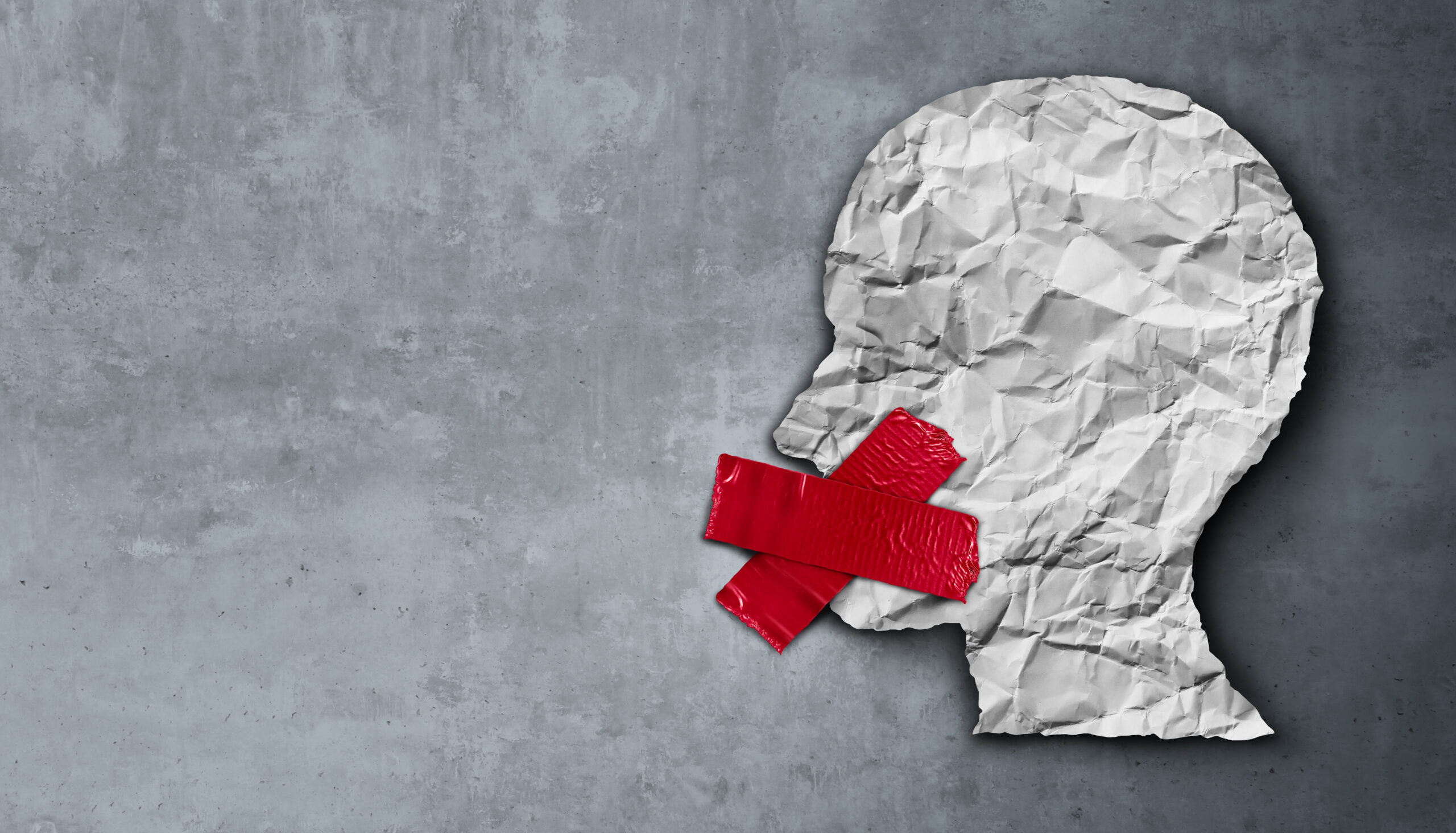Brazil took drastic measures by imposing a ban on free speech. Brazil’s controversial move, ostensibly aimed at combating misinformation and hate speech, has far-reaching consequences that extend beyond the country’s borders. One might question the delicate balance between protecting citizens and preserving fundamental freedoms. The New York Times’ in-depth analysis sheds light on how this sweeping regulation reshaped not only Brazil’s digital sphere but also the global tech industry. Delve deep into the complex issue and let us consider the potential ripple effects on online experiences and the future of internet governance worldwide.
Brazil Passes Controversial Ban on Free Speech

Brazil’s controversial ban on free speech has sent shockwaves through the nation and beyond. This sweeping legislation, aimed at curbing misinformation and hate speech, also ignited a fierce debate about the balance between protecting citizens and preserving fundamental freedoms.
The Scope of the Ban
- The new law grants Brazilian authorities unprecedented power to regulate online content. This further empowers them to remove posts deemed false or harmful and to penalize platforms that fail to comply swiftly. Critics argue that this broad authority could also be misused to silence dissent and stifle legitimate public discourse.
Global Implications of Brazil’s Controversial Ban
- Brazil’s controversial ban on free speech has far-reaching consequences beyond its borders. As one of the world’s largest democracies, Brazil’s actions may inspire similar measures in other countries grappling with online misinformation. Tech giants like Facebook and Twitter now face a complex challenge: adapting their global policies to comply with Brazil’s stringent regulations while maintaining their commitment to free expression elsewhere.
A Delicate Balance
- Proponents of the ban argue that it’s a necessary step to combat the spread of harmful falsehoods in the digital age. However, opponents warn that it could set a dangerous precedent, potentially leading to a slippery slope of censorship. As Brazil navigates this contentious terrain, the world watches closely, pondering the future of free speech in the digital era.
What Brazil’s New Law Entails and Its Reach
Brazil’s controversial ban on free speech encompasses a wide-ranging set of regulations aimed at curbing the spread of misinformation and hate speech online. This sweeping legislation has far-reaching implications for both domestic and international digital platforms operating within the country.
Key Provisions of the Law
- The new law requires social media companies and other online platforms to swiftly remove content deemed false or harmful. It also mandates increased transparency in content moderation practices and imposes hefty fines for non-compliance. Critics argue that these measures may lead to over-censorship and stifle legitimate discourse.
Extraterritorial Impact
- Brazil’s controversial ban on free speech extends beyond its borders, affecting global tech giants and potentially influencing similar legislation worldwide. The law’s broad scope has raised concerns among international human rights organizations and digital rights advocates, who fear it may set a dangerous precedent for online censorship.
Challenges in Brazil’s Implementation
- Enforcing this expansive regulation poses significant challenges. The law’s ambiguous language regarding what constitutes “false” or “harmful” content leaves room for subjective interpretation. This ambiguity could lead to inconsistent application and potential abuse of power, further complicating the already complex landscape of online speech regulation.
Global Tech Companies Face Challenges in Complying with Brazil’s Law
As Brazil’s controversial ban on free speech takes effect, major tech companies find themselves in a precarious position. This new regulation, aimed at curbing misinformation and hate speech, presents significant hurdles for global platforms operating in the country.
Navigating Brazil’s Complex Legal Waters
- Tech giants like Facebook, Twitter, and Google are now tasked with interpreting and implementing Brazil’s sweeping new rules. These companies must balance compliance with local laws against their commitment to free expression, a cornerstone of their platforms. The challenge lies in developing robust content moderation systems that can effectively identify and remove prohibited content without overreaching.
Potential Impact on Brazil’s Innovation and User Experience
- The stringent requirements of Brazil’s controversial ban on free speech may force tech companies to implement more aggressive content filtering mechanisms. This could lead to increased instances of false positives, where legitimate content is mistakenly removed. As a result, users may experience a more restricted online environment, potentially stifling creativity and open dialogue.
Global Implications and Precedent Setting
- The tech industry is closely watching how this situation unfolds in Brazil. If successful, similar regulations could be adopted by other countries, creating a domino effect of increased online censorship worldwide. This poses a significant threat to the open internet and could reshape the global digital landscape in profound ways.
Concerns Over Impacts on Brazil’s Democratic Values
Brazil’s controversial ban on free speech has ignited a firestorm of debate regarding its potential effects on democratic principles. Critics argue that this sweeping regulation, while aimed at combating misinformation and hate speech, may inadvertently stifle legitimate discourse and undermine the very foundations of a free society.
Erosion of Brazil’s Civil Liberties
- The new law raises alarming questions about the balance between public safety and individual freedoms. By granting authorities broad powers to censor online content, there are fears that Brazil’s controversial ban on free speech could be misused to silence political dissent or unpopular opinions. This potential for abuse could have a chilling effect on public debate and civic engagement, cornerstones of a healthy democracy.
Global Ripple Effects
- The implications of this legislation extend far beyond Brazil’s borders. As one of the world’s largest democracies, Brazil’s actions could set a dangerous precedent for other nations grappling with similar issues. There are concerns that authoritarian regimes might use Brazil’s example to justify their crackdowns on free expression, potentially triggering a domino effect that could erode democratic values worldwide.
Balancing Act
- While the intentions behind the law may be noble, finding the right equilibrium between protecting citizens from harmful content and preserving freedom of expression remains a delicate challenge. As Brazil navigates this complex landscape, the world watches closely, aware that the outcome could shape the future of digital rights and democratic governance in the 21st century.
What This Means for Internet Freedom in Brazil and Beyond
Brazil’s controversial ban on free speech has far-reaching implications for internet freedom, both within the country and globally. This sweeping regulation, aimed at combating misinformation and hate speech, raises significant concerns about the future of digital expression and access to information.
Immediate Impact on Brazilian Citizens
- The implementation of Brazil’s controversial ban on free speech will likely result in a chilling effect on online discourse. Citizens may become hesitant to share opinions or engage in debates, fearing potential legal consequences. This self-censorship could stifle creativity, innovation, and the free exchange of ideas that are vital for a thriving democracy.
Global Ripple Effects
- The ban’s influence extends beyond Brazil’s borders, potentially setting a precedent for other nations grappling with similar issues. Tech companies and social media platforms may need to reassess their policies and operations in Brazil, which could lead to changes in their global practices. This shift could impact users worldwide, altering the landscape of online communication and content moderation.
Balancing Act: Safety vs. Freedom
- As the world watches Brazil navigate this controversial territory, the global community must grapple with the delicate balance between protecting citizens from harmful content and preserving the fundamental right to free expression. The outcome of Brazil’s experiment with internet regulation may shape future policies and debates on digital rights and responsibilities in democracies around the world.
To Sum It Up
Considering the implications of Brazil’s controversial free speech ban, it’s crucial to recognize the far-reaching consequences of digital freedom worldwide. This unprecedented move not only challenges fundamental democratic principles but also sets a dangerous precedent for other nations to follow. While the intentions behind curbing misinformation and hate speech may be noble, the potential for abuse and overreach cannot be ignored. As global citizens, it is imperative that you remain vigilant and engaged in the ongoing debate surrounding digital rights and freedoms. The outcome of Brazil’s experiment with censorship will undoubtedly shape the future of online expression and democracy in the digital age.
More Stories
Microsoft Unveils Windows 365 Link : A Compact Gateway to Cloud Computing
Microsoft’s latest innovation, the Windows 365 Link, emerges as a game-changing solution for your business. This compact, fanless mini PC represents a significant leap forward in cloud connectivity, offering you a streamlined gateway to Windows 365 Cloud PCs
DOJ Targets Google’s Dominance: Potential Chrome Sale and Android Unbundling on the Horizon
The tech giant argues these measures are too extreme. However, the DOJ sees them as necessary to ensure a fair playing field. The outcome of this antitrust battle redefines interactions with search engines, browsers, and mobile devices for years to come.
Australia Moves to Set 16 as the Minimum Age for Social Media
As you navigate the ever-evolving landscape of digital communication, a significant shift is on the horizon in Australia. The nation's...
Interlock Ransomware Surge Threatens U.S. Healthcare Systems Amid Growing Cyber Vulnerabilities
As you navigate the complex landscape of healthcare cybersecurity, a new threat looms on the horizon. The Interlock ransomware group...
Madison Technologies’ AI-Powered Rail Safety Innovation Earns Top Global Cisco Award
As you navigate the complex landscape of rail safety innovation, you'll find that Madison Technologies has emerged as a true...
Why Google Cloud’s Mandatory MFA is a Game-Changer for Secure Access
In an era where cyber threats are evolving at an alarming rate, Google Cloud is taking a bold step to...



